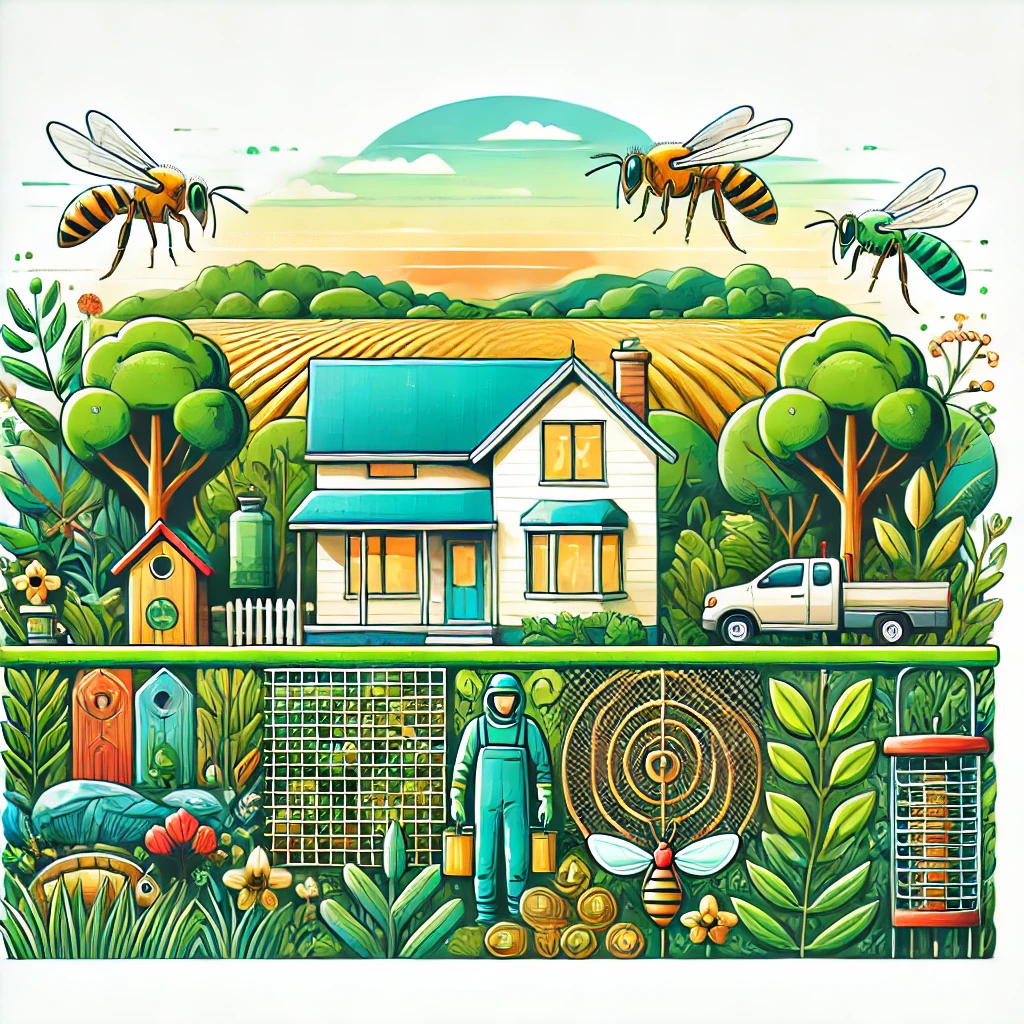As environmental awareness continues to rise in New Zealand, many industries are adopting more sustainable practices, and the pest control business is no exception. Traditional pest control methods often rely on harsh chemicals that can harm the environment, pets, and even people. However, the growing demand for eco-friendly pest control solutions is leading businesses to innovate, offering greener alternatives that protect both homes and the environment.
This article explores the rise of eco-friendly pest control solutions in New Zealand, why businesses are shifting to these methods, the benefits of sustainable pest management, and how these practices are making a positive impact on the environment and local communities.
The Need for Eco-Friendly Pest Control
Pest control is an essential service for protecting homes, businesses, and agricultural operations from harmful pests. However, many conventional pest control methods involve synthetic chemicals and pesticides that can have long-term negative effects on the environment. These chemicals can seep into soil and water supplies, harming wildlife and non-target species. Moreover, prolonged exposure to toxic chemicals may pose health risks to humans and pets.
As awareness of these risks has grown, New Zealanders have increasingly sought out pest control companies that offer sustainable and eco-friendly alternatives. Customers want effective pest control solutions without compromising the environment or their safety. In response, pest control businesses are adapting their practices to align with the demand for environmentally friendly solutions.
What is Eco-Friendly Pest Control?
Eco-friendly pest control, also known as green pest management, involves using non-toxic, biodegradable, and environmentally safe methods to eliminate or prevent pests. Rather than relying on chemical pesticides, these solutions focus on integrated pest management (IPM) techniques that minimize harm to the environment while effectively managing pest populations.
Some common eco-friendly pest control methods include:
- Natural Predators: Introducing natural predators or beneficial insects into the environment to control pest populations. For example, ladybugs can help reduce aphid infestations in gardens without the need for pesticides.
- Botanical and Organic Pesticides: These are derived from natural sources such as plants, minerals, or bacteria and are less toxic to the environment. Examples include neem oil, diatomaceous earth, and pyrethrin.
- Traps and Barriers: Using physical barriers, traps, or mechanical devices to prevent pests from entering a home or garden. This can include screens, baits, or non-lethal traps to capture pests without using harmful chemicals.
- Biodegradable Solutions: Certain biodegradable chemicals break down quickly in the environment and pose minimal risk to wildlife or ecosystems, making them safer alternatives to synthetic pesticides.
- Prevention and Habitat Modification: Eco-friendly pest control focuses on preventing infestations by addressing the root causes. This includes sealing entry points, reducing food and water sources, and modifying the habitat to make it less attractive to pests.
The Shift Toward Sustainable Pest Control in New Zealand
New Zealand’s unique ecosystem, with its diverse range of flora and fauna, makes it a particularly sensitive environment when it comes to the use of chemicals and pesticides. In recent years, there has been a significant shift toward sustainable pest control practices as more businesses recognize the importance of protecting the environment and reducing their carbon footprint.
Several factors have contributed to this shift:
- Growing Environmental Awareness: With greater awareness of environmental issues such as climate change, pollution, and biodiversity loss, both consumers and businesses are seeking out eco-friendly alternatives. Pest control companies are responding by adopting greener methods that align with New Zealand’s commitment to sustainability.
- Regulatory Changes: The New Zealand government has implemented regulations aimed at reducing the use of harmful chemicals in agriculture and pest control. These regulations encourage businesses to adopt safer, more sustainable practices to minimize the impact on the environment.
- Consumer Demand: As more consumers become educated about the potential risks of traditional pest control methods, they are actively choosing companies that offer eco-friendly solutions. This growing demand has prompted pest control businesses to invest in research and development to find safer, non-toxic alternatives.
- Innovations in Pest Control Technology: Advancements in technology have made eco-friendly pest control more accessible and effective. For example, businesses are now using smart traps, thermal imaging, and pheromone-based solutions to target pests without the need for chemicals.
Benefits of Eco-Friendly Pest Control
Switching to eco-friendly pest control solutions offers numerous benefits for both businesses and customers. Some of the key advantages include:
- Reduced Environmental Impact: Eco-friendly pest control minimizes the use of toxic chemicals, reducing contamination of soil, water, and air. This helps protect New Zealand’s fragile ecosystems and ensures that non-target species, such as beneficial insects, are not harmed.
- Safer for Humans and Pets: Green pest control methods are typically non-toxic and safer for humans, pets, and wildlife. Homeowners no longer need to worry about harmful chemical residues left behind after treatments.
- Long-Term Pest Management: By focusing on prevention and integrated pest management, eco-friendly solutions often provide more sustainable, long-term results. These methods address the root cause of infestations, reducing the likelihood of pests returning in the future.
- Support for Local Agriculture: Many eco-friendly pest control businesses source their products and solutions from local suppliers, supporting New Zealand’s agricultural sector. This helps foster a circular economy and strengthens the local economy.
- Positive Brand Reputation: For pest control businesses, adopting eco-friendly practices can enhance their reputation and attract environmentally conscious customers. By positioning themselves as sustainable and responsible businesses, they can stand out in a competitive market.
Leading Eco-Friendly Pest Control Companies in New Zealand
Several pest control companies in New Zealand are at the forefront of the eco-friendly movement, offering green solutions that protect both homes and the environment. Some notable businesses and their websites include:
- Kiwi Care Pest Control: Known for using environmentally safe and non-toxic products, Kiwi Care Pest Control offers comprehensive pest management services tailored to the needs of New Zealand’s environment.
- EnviroPest: Specializing in eco-friendly and organic pest control methods, EnviroPest is dedicated to providing safe, sustainable pest management solutions for homes and businesses.
- EcoSan Pest Control: With a focus on environmentally responsible pest control, EcoSan offers a range of natural and biological pest solutions, from organic repellents to habitat modification techniques.
Conclusion
The shift toward eco-friendly pest control solutions in New Zealand reflects the growing commitment to sustainability and environmental protection. As more businesses adopt greener practices, they not only reduce their impact on the environment but also provide safer and more effective pest management for their customers.
Whether you’re a homeowner looking to protect your property or a business aiming to enhance your eco-credentials, choosing an eco-friendly pest control provider is a responsible and effective solution. With innovative methods and a focus on long-term prevention, green pest control is helping New Zealand move toward a more sustainable future.


